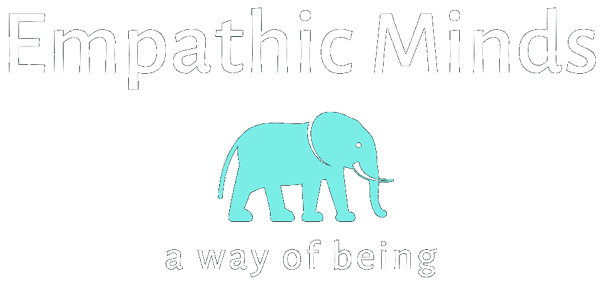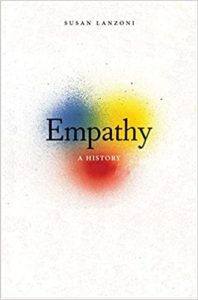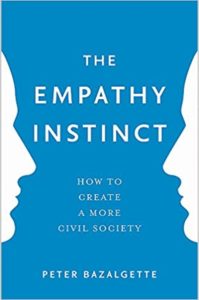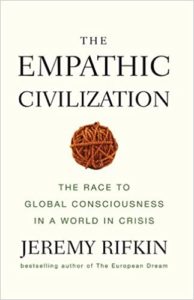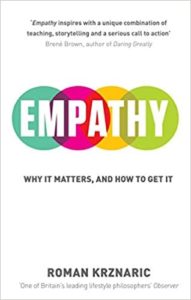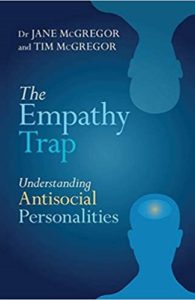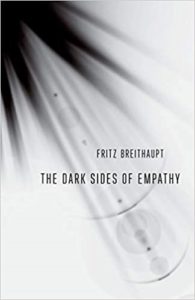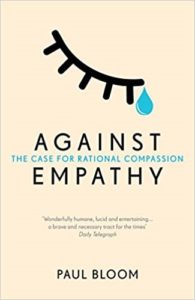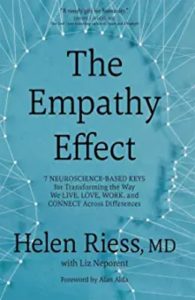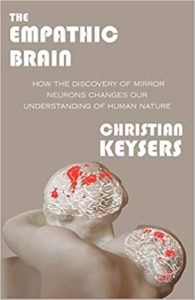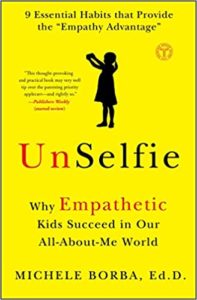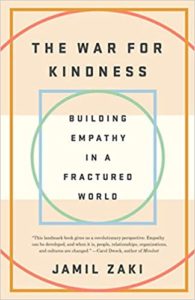Book Club
Book Club
Book Club
A rediscovered awareness of the importance of empathy in our lives has led to the publication of a multitude of books in recent years. Here are some of the best examples, recommended and reviewed by Dr Peter Sear:
Empathy by Susan Lanzoni
The Empathy Instinct by Peter Bazalgette
A passionate look at the role empathy has in our lives and the potential it has to improve them; from young children to adults. I bought this after listening to the author’s wonderful Radio 4 programmes on empathy. Very nice man too; the world would undoubtably be a better place if everyone read his book.
The Empathic Civilization by Jeremy Rifkin
I got a great deal from this analysis of the role of empathy in human philosophies stemming from theologies and ideologies. History may have got us this far, yet sometimes it has lacked the empathy required for us to thrive. This seems to be the case now more than ever and realising the powers of empathy could hold the key to saving our civilisation.
Empathy by Roman Krznaric
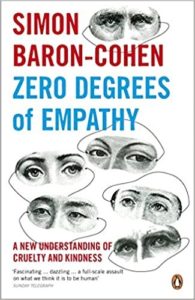
Zero Degrees of Empathy by Simon Baron-Cohen
This book examines cruel behaviour and how often it is due to a lack of empathy. We’ve all come across people who treat others like objects and there can be a medical explanation for that. It’s important to understand that empathy training may prove far more difficult in some people than others. Sometimes it may even be impossible. The book made me reflect on another book: Snakes in Suits by Babiak & Hare, which focuses on psychopaths in organisations.
The Empathy Trap by McGregor and McGregor
The Empathy Trap references Baron-Cohen’s Zero Degrees of Empathy as part of its analysis of sociopaths. Sociopaths will try to manipulate you, particularly if you try to be empathic towards others. They take advantage of your empathy and use it against you. This book highlights some signs to look out for. I think this highlights a paradox: being an empathic person may make you vulnerable to manipulators, but being highly skilled in empathy should make a threat easier to spot.
The Dark Sides of Empathy by Fritz Breithaupt
The Dark Sides Of Empathy highlights the complexities of empathy. Sometimes we may feel our empathy is guiding compassionate behaviour, only to learn that we’ve failed to see this bigger picture. Other darker aspects of empathy are considered. I found the section on empathic sadism fascinating.
Against Empathy by Paul Bloom
Like Breithaupt, Bloom critiques empathy less favourably than other authors; appreciating its value, but believing that empathy is sometimes overrated and should certainly come with a warning. He highlights the need for rationalising and reflecting before we make mistakes. Empathy can take us into wars, set groups against each other and encourage behaviours in others that are not for the common or long-term good. This book gave me a holistic view of the very real consequences of empathy.
The Empathy Effect by Helen Reiss
The Emapthy Effect focuses on developing empathy in order to bond with others, starting with our parents. Reiss cleverly breaks empathy into 7 key features: E.M.P.A.T.H.Y. and shows how to recognise empathic behaviour and how to empathise with one’s self. My favourite section focused on how art helps to build and develop empathy.
The Empathic Brain by Christian Keysers
Unselfie Why Empathic Kids Succeed in Our All-About-Me World by Michele Borba
Having heard so much about the empathic deficit in today’s society, I wanted to read a book that focused on developing empathy in children. The world is very different for teenagers compared to the one their parents lived in. This may be true of all generations, but social media in particular teases teens into focusing on their own image rather than their feelings or those of others. I’m certain that parents, teachers and teens will get a lot from this book.
The War for Kindness Building Empathy in a Fractured World by Jamil Zaki
This book helped me to really get to grips with how empathy works. We are able to turn it on and off and often do so automatically based on group membership. We are far more likely to empathise with those we feel more akin to and lack empathy for those we see as different, which can exacerbate the divide. Empathy can prove draining and so we have to use it economically and with empathy for our own wellbeing. Zaki offers great examples of professions where dialling down the empathy is essential, like a surgeon who might struggle to insert a knife if he were focused on empathy for the patient.
